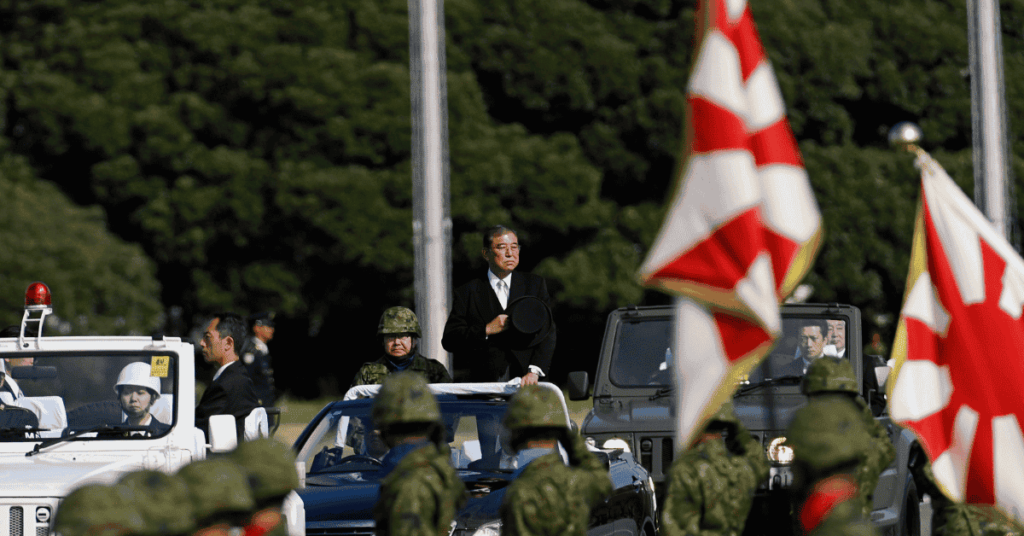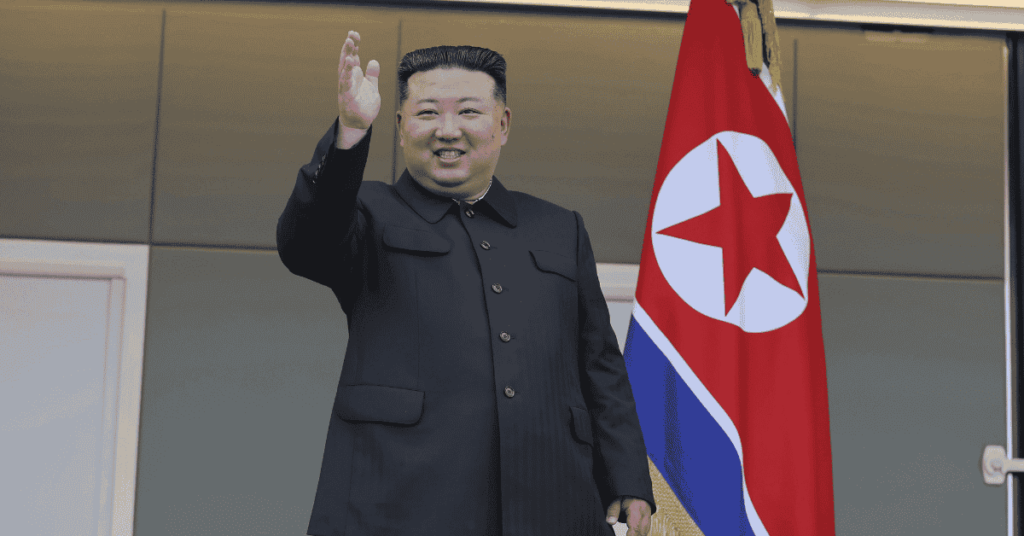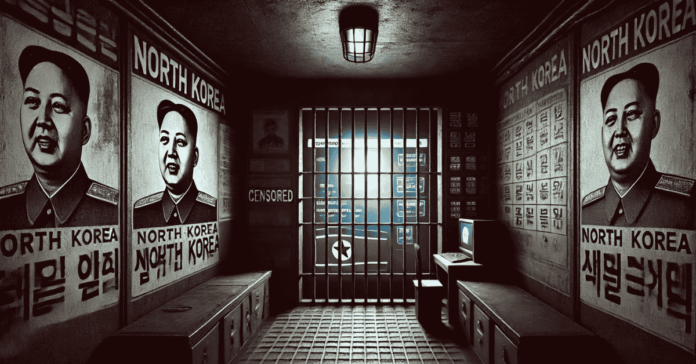The Dark Reality of North Korean Life: A Totalitarian Dictatorship
Introduction
North Korea, officially known as the Democratic People’s Republic of Korea (DPRK), is often referred to as the world’s most isolated and oppressive regime. Under the control of the Kim dynasty, the country is governed by strict rules that dictate every aspect of citizens’ lives. From controlling hairstyles and clothing to monitoring personal communications, the North Korean government enforces a totalitarian regime unlike any other. Here’s an in-depth look at what life in North Korea entails and the terrifying extent of the government’s control.
North Korean The Law of Guilt by Association
One of the most shocking aspects of North Korean governance is the “guilt by association” law. If a person commits a political crime, three generations of their family can be punished. This law ensures that families live in constant fear and discourages dissent.
Example: Shin Dong Hyuk, born in a political prison camp, witnessed his mother and brother’s execution after reporting their escape plan. This horrifying practice instills a deep-rooted culture of distrust within families.
Education Without Freedom in North Koria
While education is free and mandatory, the quality and purpose of education are questionable. Bribery determines the attention students receive, and propaganda dominates the curriculum. Only the elite gain access to better schools, and even after graduation, compulsory military service lasting up to 10 years is enforced for men.
The Illusion of Democracy in North Koria
North Koria holds parliamentary elections every five years, but the results are predetermined. Only candidates from the ruling Workers’ Party can contest, and voting against them is considered treason. As a result, voter turnout is always reported as 100%, a facade to maintain the illusion of democracy.
The Fashion Police in North Korea : Controlling Appearances
The North Korean government even dictates citizens’ hairstyles and clothing.
- Hairstyles: Only 28 hairstyles (10 for men, 18 for women) are approved. Dictator Kim Jong Un’s haircut is banned for others.
- Clothing: Items like jeans, branded clothes, and makeup are restricted to prevent “Western influence.” Violators face fines, public humiliation, or jail.
The North Koria government considers fashion a potential cultural invasion that could lead to admiration for foreign lifestyles, threatening their control.
North Korea Surveillance and Monitoring
North Koria monitors its citizens to an extreme extent:
- Phones: Random screenshots are taken and sent to authorities to check for banned content.
- Movement: Travel between regions requires government approval, and international travel without permission is a capital offense.
- Entertainment: Only government-approved media is allowed. Watching foreign shows or movies is a punishable crime, sometimes resulting in public executions.
North Koria The Scarcity of Resources
North Koria economy collapsed after the Soviet Union’s fall in the 1990s, leading to widespread famine. Millions of people died of starvation, and many resorted to eating grass or hunting frogs. Even today, electricity is scarce, with most areas plunged into darkness by night.
North Korean Life Cultural Suppression

Entertainment is heavily censored to maintain government propaganda. South Korean dramas and music are smuggled through black markets, despite the severe risks. For example:
- In 2021, two teenagers were sentenced to hard labor for watching and distributing South Korean dramas.
- A young man was publicly executed for sharing South Korean media.
Despite these punishments, the demand for outside entertainment highlights the growing discontent among citizens.
The Role of Fear in Governance in North Korean life
The regime’s secret police enforce strict compliance. Surveillance is ubiquitous, ensuring that any act of dissent or nonconformity is met with severe consequences. Family members, friends, and even children fear reporting one another to avoid collective punishment.
1. A Nation Cloaked in Fear: A Glimpse into North Korea Media Censorship
In North Koria, foreign media is strictly forbidden. Government officials raid homes in the dead of night, forcing open DVD players to ensure no one is watching smuggled content. Despite such restrictions, citizens have adapted, using USB sticks to discreetly share forbidden films and dramas. Viewing these in hushed tones with lights off has become a symbol of quiet rebellion against state control.
2. The Illusion of Connectivity: Internet Under Surveillance
Access to the internet is a privilege for the elite few, monitored with invasive measures. Every search requires a librarian’s oversight and a fingerprint to continue browsing. The common populace is relegated to an intranet with government-approved websites, a highly censored virtual environment where even basic apps are accessed only through physical government-controlled stores.
3. Atheism and Persecution: The Religious Clampdown In North Korean Life
North Koria officially declares itself an atheist state, with religion being punishable by death. Christians face especially harsh persecution, accused of harboring Western influences. The execution of a woman, Ri Hyon Ok, for distributing Bibles, and the subsequent imprisonment of her family highlights the grim fate awaiting those who defy the state’s atheistic stance.
4. Worship of the Kim Family in North Koria: A Manufactured Religion
The regime demands reverence for the Kim family, presenting them as deities. Images and statues of Kim Il-Sung and Kim Jong-Il dominate homes and public spaces, requiring meticulous care. A woman’s choice to save her children from a fire instead of the family portraits led to an investigation and denied medical care, showcasing the regime’s inhumane priorities.
5. Songbun Noth Koria: A Society Stratified by Loyalty

North Korean society is divided into three rigid classes under the Songbun system: the loyal Core class, the suspect Wavering class, and the ostracized Hostile class. Opportunities, resources, and even marriages are determined by this classification, fostering distrust among families and neighbors, with forced spying ensuring a pervasive culture of fear.
6. Black Markets in North Koria : The Silent Rebellion of Women
The economic collapse of the 1990s forced North Koreans to fend for themselves, leading to the rise of Jangmadang—local black markets, primarily run by women. These hubs not only sustain families but also expose citizens to foreign ideas, weakening the government’s propaganda machine.
7. Forced Labor in North Korea: The Backbone of a Dictatorship
Modern-day slavery underpins North Koria economy. Citizens, including political prisoners, endure grueling 20-hour workdays in mines, farms, and factories under dire conditions. Punishment extends across families through the regime’s “guilt by association” policy, ensuring collective suffering.
8. Political Prison Camps: A Grim Reality
North Koria: Political prisoners, including entire families, languish in concentration-camp-like facilities. Starvation is rampant, with prisoners resorting to eating rats, grass, and pig fodder to survive. Attempted escapes often end in electrocution or execution. Guards are instructed to eliminate all prisoners during crises to erase evidence of these atrocities.
9. Propaganda’s Lasting Grip
From childhood, North Koria is indoctrinated with fabricated tales of their leaders’ greatness. News media serves as a mouthpiece for the regime, portraying the outside world as chaotic and corrupt. Yet, exposure to smuggled foreign content has begun to shatter this illusion, fostering awareness and dissent.
10. Corruption and Unity: Cracks in the Regime’s Foundation

Corruption permeates every aspect of North Koria life. Bribes have become a survival mechanism, enabling citizens to bypass the regime’s draconian rules. Simultaneously, black markets and shared resistance against oppression are fostering unity, undermining the regime’s divisive tactics
11. Lessons for the World from North Koria : The Power of Freedom and Unity
North Korea serves as a cautionary tale of unchecked governmental control. The resilience of its people, however, underscores the enduring human spirit. As the regime weakens under its own corruption and the influence of shared knowledge, the world watches, hoping for a brighter future for its citizens.
Conclusion
North Koria harrowing tale reveals the devastating impact of a totalitarian regime on its people. It also serves as a reminder of the importance of unity, freedom, and vigilance against any form of oppression. Despite decades of repression, the seeds of change are quietly being sown, driven by the courage and resilience of its people.

